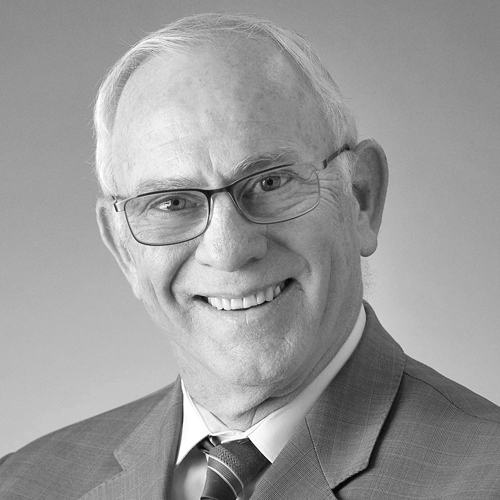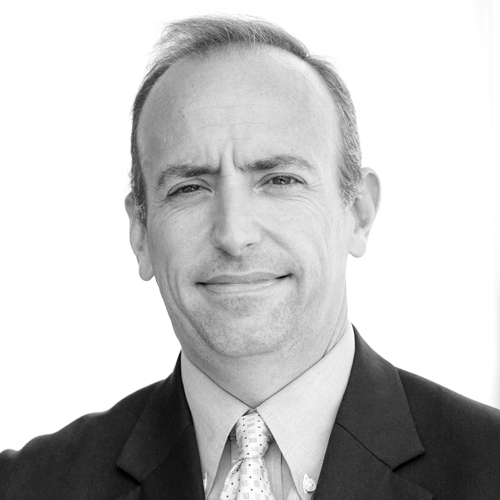Soldiers patrolled the streets as the van delivered precious cargo to the airport. Martial law had been declared, but was failing to calm the upheaval in Iran in 1978. Simon Manoucherian’s Polish-Armenian great-grandparents on both sides had immigrated to Iran before he was born. Almost half of the world’s ethnic Armenian population has lived outside of Armenia for generations after the genocide of Armenians by the Ottoman Empire and, subsequently, by the Turkish Republic at the turn of the twentieth century.
Now, thanks to this van and the friend who drove it, they would move again to escape the radial Islamic revolution. “Sometimes things happen that are out of your control,” Manoucherian’s father said to his five-year-old son as they boarded the plane to America.
Seeing his parents leave everything behind to make a better life for their family taught Manoucherian the value of determination and hard work. Watching his parents learn a new language inspired his passion for education. Paying attention to the way they kept the family together in the face of hardship taught him resilience and faith. “My parents taught me to overcome obstacles,” he says. “They taught me to keep pushing, be a good person, and never underestimate the value of education.”
Manoucherian was enrolled at a private Armenian school, and in fourth grade during the weekly religion class, he memorized the Ten Commandments. The commandments inspired a budding interest in law—including common rules such as traffic lights, crosswalks, and signs that designate who is allowed to park where and when. He realized that all rules boiled down to those ten ancient commandments in one way or another. He was fascinated by whatever it was inside human beings that compelled them to obey. After school that day, he went home and told his parents he wanted to be a lawyer.
By sixth grade, Manoucherian could perfectly recite the Miranda rights, loved the concept of being innocent until proven guilty, and had developed a passion to read and learn. His fascination with law, coupled with his parents’ values and work ethic, motivated him through California Lutheran University (where he graduated magna cum laude with a bachelor’s degree in political science), Southwestern Law School (where he was associate editor for the Law Review, a member of the Moot Court Honors Program, and in the top 10 percent of his class), and the beginning of his career. Before the age of forty, Manoucherian had become an equity partner at a private firm and had reached what he believed was the pinnacle of legal practice.
Meanwhile, he also met his wife. For a time, they were both content to be consumed by work, but when she became pregnant and her grandmother died in the same year, their mindset began to shift. “We had to take a few days off for the funeral, and I realized it was the first time I’d slowed down in years,” he says. “It gave me the opportunity to think about how I would balance work and fatherhood.” A few days later, a compelling email from on old boss arrived with an intriguing in-house opportunity.
Grifols is a multinational biopharmaceutical and diagnostics company that is a leading global producer of blood plasma-based products. “When I came here, I was blown away,” Manoucherian recalls. “Thirty days later, I joined as senior counsel and director of litigation.” That was September 2008, and three months later, his twin boys were born. “This company supports work-life balance, and my whole team supported me in my work when my babies were born,” he says.
Manoucherian has since been promoted to Grifols’s assistant general counsel and then to deputy general counsel in June of 2016. He also knows his work is directly helping a company that’s having such a powerful impact in healthcare. “When I give the ‘Welcome to Grifols’ talk at new employee orientation, I love to say that my team and I are the only lawyers I know who save lives,” he says. “We are part of the entire process. If we do our jobs right, people get access to our life-saving drugs and diagnostic machines.”
As head of all legal operations in North America, Manoucherian is committed to understanding all aspects of the business. Most of Grifols’s medicines are made of plasma, so he has visited several of its 162 donor centers. He is also familiar with operations at the two main US manufacturing hubs and international offices, including Grifols’s global headquarters in Barcelona.
“We believe we have the technology to build the foundation that a deficient immune system needs.”
Manoucherian is dedicated to building trust with his team through collaboration and shared responsibility. “I relish this role, and I’m so proud of this company,” he says. “It’s a lot of work, and I know I couldn’t balance everything without such an amazing team.”
Appreciation for others is a company trait, and pride and passion for donors, patients, and employees is ingrained in Grifols’s culture. One project that he is particularly excited about is Grifols’s Convalescent Plasma Collection Project—a system that is dedicated to fighting emerging pathogens around the world by collecting antibody-rich, hyperimmune plasma from donors who were sick and have recovered. In Liberia, for example, Grifols collected plasma from Ebola survivors.
In a complex process, plasma is broken down into core units used to develop medicines to fight specific illnesses. “We believe we have the technology to build the foundation that a deficient immune system needs,” he says. “Grifols engineering, as well as manufacturing, is famous for turning concepts like these into reality.”
Whether it’s developing life-changing medical resources, pursuing a career in law, learning a language (he fluently speaks four), or moving to a new country, he has become an expert at turning concepts into reality. He has always had a passion for bettering human life (which happens to be Grifols’s ultimate mission), and he knows his father’s determination, his mother’s consideration, and his integrity are the components to do just that.


